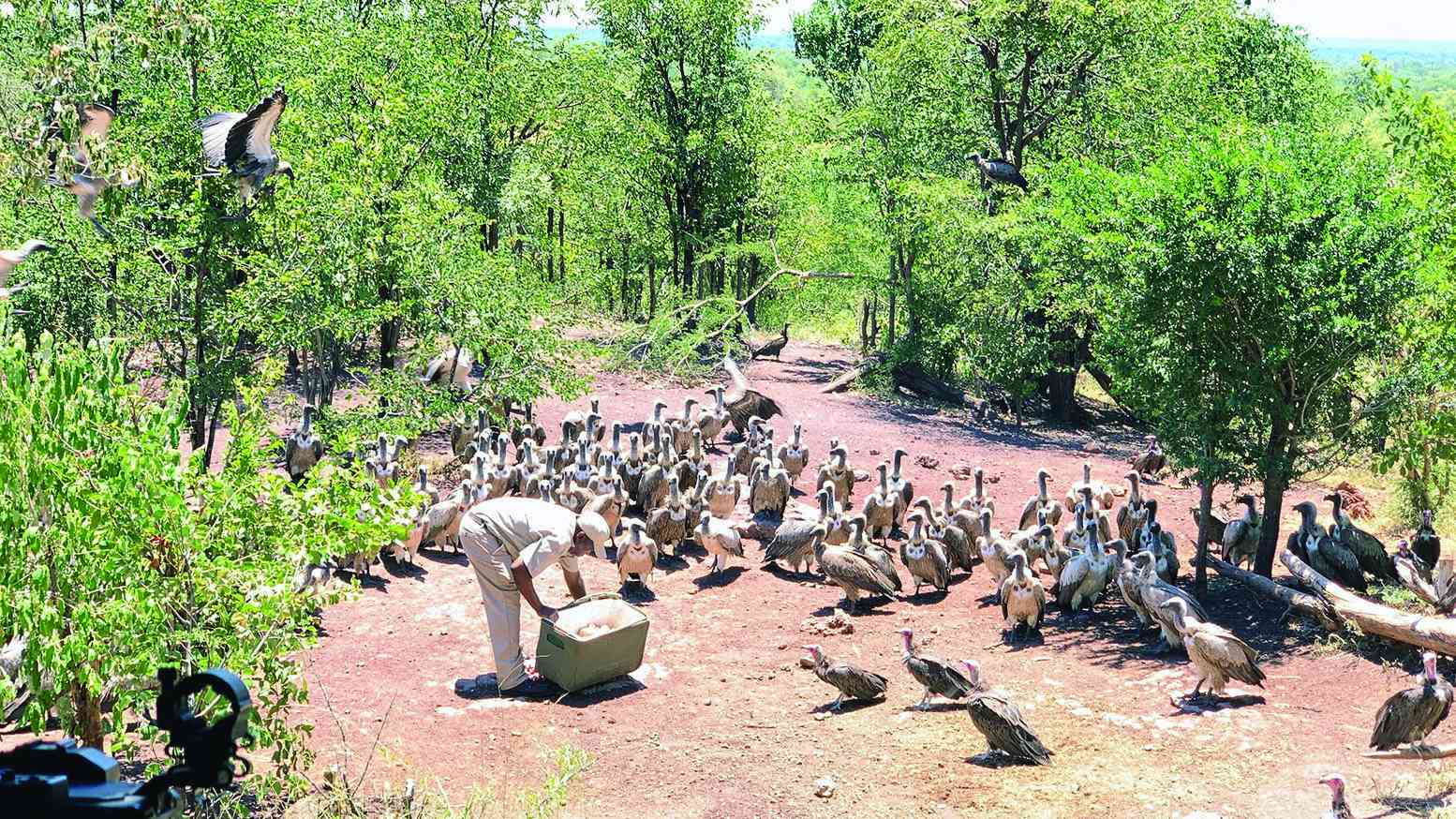‘Vulture Culture’: More than just your typical safari experience

Deep inside the heart of the Zambezi National Park, against the stunning backdrop of the thundering “smoke” of the Victoria Falls, lies the Victoria Falls Safari Lodge.
Here, in this seemingly serene park teeming with wild fauna, is a story that goes beyond your typical safari experience.
It’s a story about the delicate balance between tourism and the unwavering commitment to conservation. It is about the silent heroes of the ecosystem.
Standing tall and proud, one of the lodge’s guides Moses Garira, has a passion for wildlife conservation that burns brightly. But a special species of interest close to his heart is often misunderstood and maligned, but plays a crucial role in the ecosystem: the vulture.
It’s 1pm, and Garira leads guests to the “vulture restaurant” in the bushes below, a stone’s throw away below this iconic tourist resort.
His voice carries a sombre undertone when he speaks of the plight of these endangered species. They are misunderstood because they are believed to be mythical by the locals and maligned because they are loathed by wildlife poachers.
But unbeknown to many, these majestic birds act as nature’s sanitation crew, cleaning up decomposing carcasses, hence prevent the spread of diseases.
However, their effectiveness in quickly spotting a carcass makes them unwitting victims of poachers.
Poachers, desperate to conceal their crimes, lace carcasses with poison, a tactic that tragically claims the lives of nature’s health workers.
Poisoning has had a tragic toll on their numbers.
This is exacerbated by the fact that vultures have a long gestation period – they only hatch two chicks per year.
In order to protect these natural health workers, Victoria Falls Safari Lodge has devised a novel vulture protection strategy by creating a “vulture restaurant”, drawing up to 200 vultures at a time and serving up leftover meat.
This is under its long-running conservation programme, the Vulture Culture Experience, as a way to save this endangered bird species.
This ensures their survival and, in turn, safeguards the delicate balance of the ecosystem.
At the vulture restaurant, Garira explains how vultures are silent sentries of the wild when they circle above a dead animal as this alerts rangers.
“In Victoria Falls, we mostly have the white-backed vultures and the hooded vultures, and studies have been done to ascertain why vulture population has dropped year in year out and, unfortunately, it has been discovered that vultures are facing a variety of human created challenges,” Garira said.
According to a report by the Victoria Falls Wildlife Trust, poachers have recently gotten increasingly skilled in their illegal wildlife trophy hunting, substituting less obvious weapons like cyanide and agricultural poisons for rifles.
The death of hundreds of vultures by a single poisoned elephant can have catastrophic cascade effects on vulture populations.
Garira added that sometimes the use of poison is not targeted at the vultures, but by people targeting predators that are killing their beasts.
“Some of the farmers contribute to the decimation of the vulture population as well; when a farmer finds that one or two of its beasts were killed by predators they think of eliminating those predators by lacing poison in the leftover carcasses so that when those predators come to finish eating their kill, they will feed off the poison and die,” he said.
“Sometimes they do not fall for the trap, so the vulture locates the carcass and feeds off it and dies, meaning humans have the potential to wipe out these endangered species,” he added.
The Vulture Culture Experience is a big hit with visitors to this premier resort town since it allows them to see vultures up close and learn about their ecological significance and the threats to their survival.
The tale of the vultures at the Victoria Falls Safari Lodge is a important reminder of how intertwined all species are in nature and how crucial it is to preserve them, regardless of how small or big they may appear.

© Voice Of Zimbabwe Privacy Policy Contact us